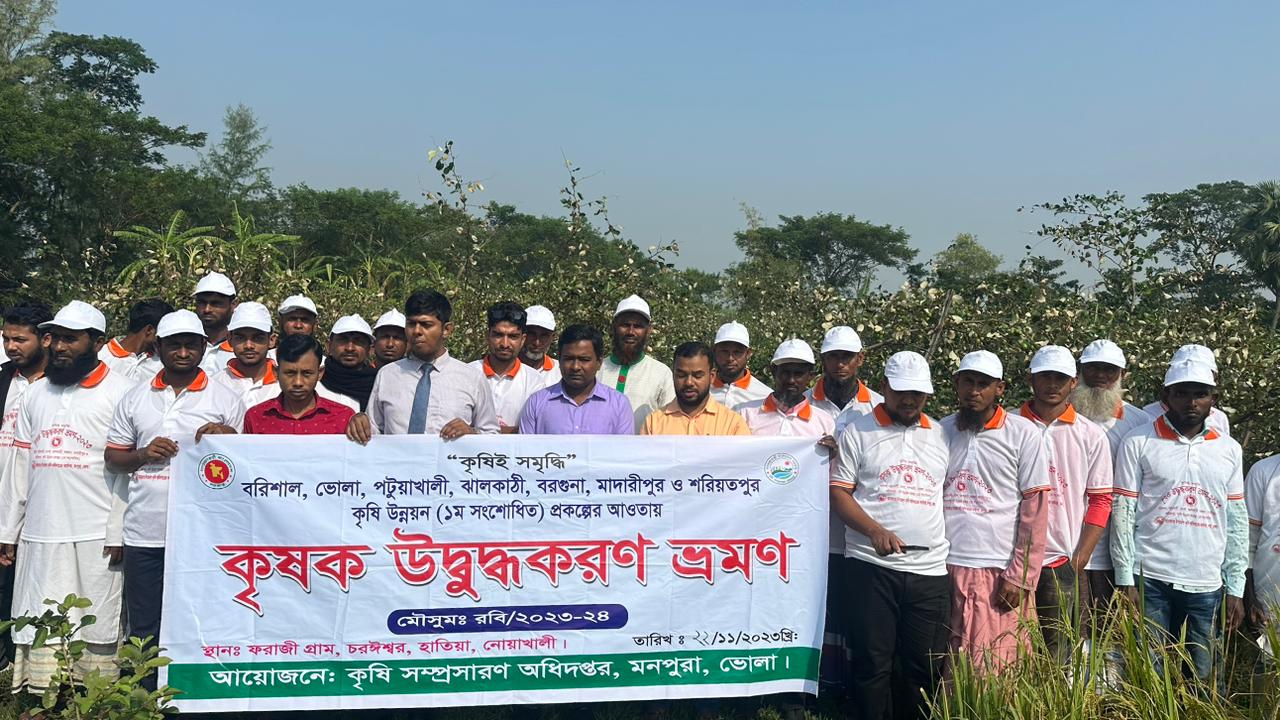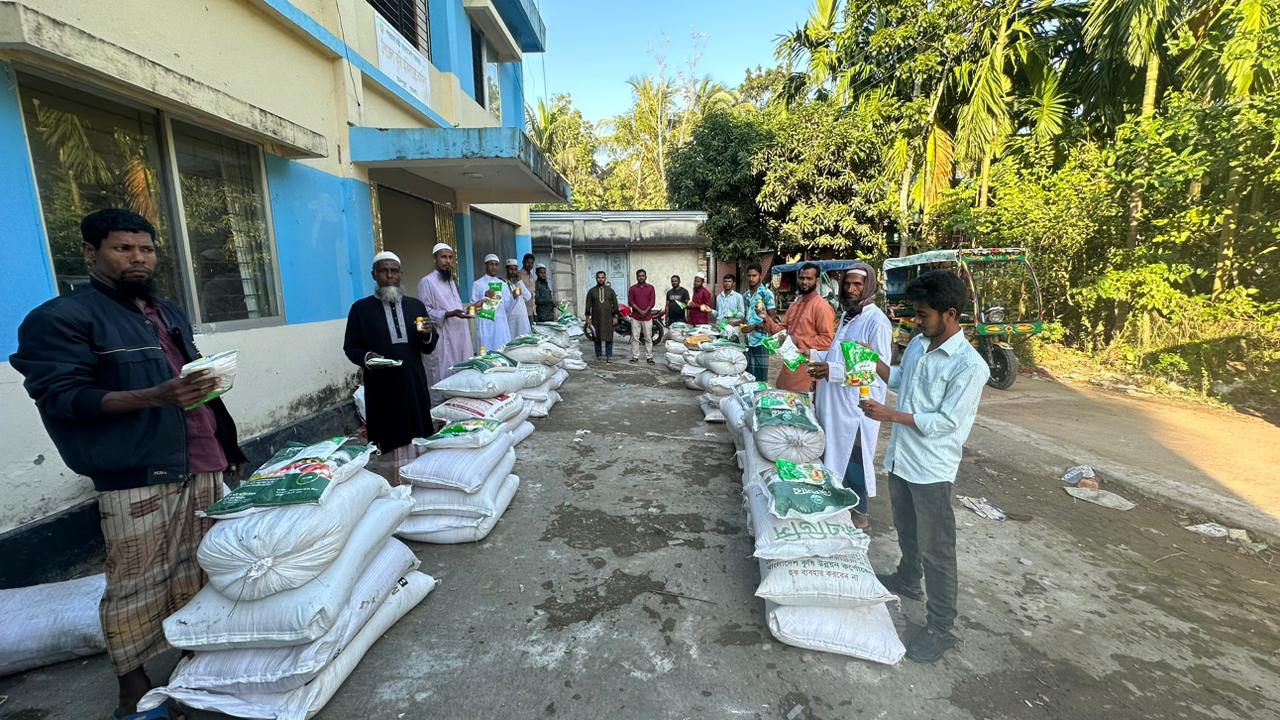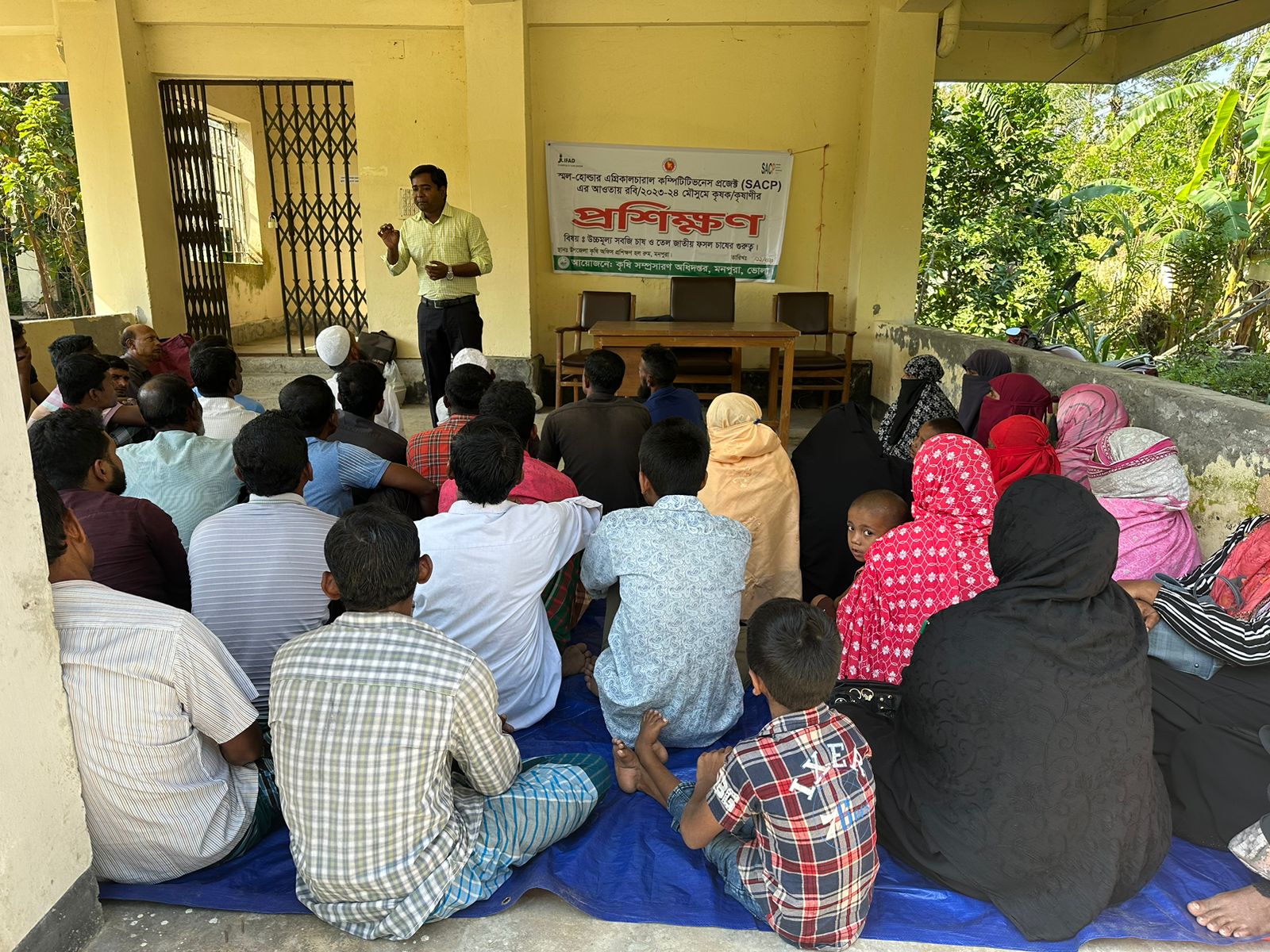- About us
-
Our Services
Downloads
Training & Suggestions
Inspection
-
Higher Offices
Division / District
Ministry / Department
- E-Service
- Gallery
-
Contact
Office Contact
Communication Map
- Opinion
- About us
-
Our Services
Downloads
Training & Suggestions
Inspection
-
Higher Offices
Division / District
Ministry / Department
- E-Service
- Gallery
-
Contact
Office Contact
Communication Map
- Opinion
Boro season is most productive in rice production. The foundation of the country's food security has been laid on the basis of this undeniable boro. 58 percent of the country's total production comes from this season. Through proper management, the average yield of Boro rice can be increased from 1.5 to 2.0 tons per hectare which can play a huge role in national production. Immediately after independence, to meet the 3 million ton food deficit of the newly independent country, Bangabandhu provided improved methods of cultivation, improved seeds, irrigation and other agricultural inputs in the short term and increased productivity in agriculture by waiving off agricultural loans, withdrawing certificate cases and distributing khazami. Try to achieve self-sufficiency in food. Bangabandhu used to say, 'In a country with limited resources, the situation of continuous reduction in production in the agricultural sector cannot continue. All efforts should be taken to increase production rapidly. Farmers should be assured of fair and stable prices.' Initiated the use of improved seeds and technology, built superior agricultural research and educational institutions. In order to increase productivity during Bangabandhu's regime, within 1973, Boro took a massive initiative to increase plantations in the country by installing 40,000 powered low-lift pumps, 2,900 deep tube wells and 3,000 shallow tube wells at a reduced price to rebuild the destroyed agricultural infrastructure and supply agricultural machinery. At one time, the cultivation of Boro in the country was less, but with the introduction of irrigation system, the cultivation started to increase. Along with this, new and improved varieties are continuously added to increase the yield. As a result, Boro, which was ranked third in terms of production, rose to the first position, which has strengthened the country's food security.
There is a campaign about boro paddy that it takes 3000-5000 liters of water to produce one kg of paddy. But a joint study by BRI and the Australian Center for Agricultural Research found that 1,200-1,500 liters of water are needed to produce each kilogram of rice under controlled irrigation at the farmer level. 550-650 liters of water is enough to produce each kg of rice if we calculate the actual water consumption in paddy production excluding wastage. In order to increase boro cultivation, such negative campaigns, public awareness raising activities should be undertaken and also awareness of farmers should be raised to prevent wastage of water in boro cultivation.
There is another negative campaign, the farmers incur losses in boro cultivation, but analyzing the economic status of boro rice cultivation in the last 19 years from 2001-2019, it can be seen that farmers are making an average profit of Tk 502 per hectare per year by cultivating boro rice. Although there is variation in profits in some years, farmers generally grow boro rice as a cash crop. Which they sell as needed to meet their daily needs. A major part of farmers' income comes from boro rice. If Boro paddy is not cultivated, the income of the farmer will decrease to a great extent and their socio-economic status may fall below the poverty line. So boro paddy cultivation is very important to ensure food security.
Aman paddy yield in 35 districts has been damaged due to six rounds of floods due to heavy rains this year. However, there is no fear of food shortage in the country but if we consider the production throughout the year, there will be a surplus of about 30 lakh tons of rice to meet the food demand of the country till next June. Bri has obtained this information by surveying farmers, extension workers, NGOs, millers and consumers in 14 agricultural regions of the country for the past one month. This is the first time yield and production data have been analyzed using satellite imagery to estimate production. So the spread of fear of low rice production and food shortage across the country is not true at all.
The Hon'ble Prime Minister directed the Hon'ble Agriculture Minister to increase Boro production to compensate for the loss of Aman and encouraged the farmers to ensure that no cultivable land in Boro is left vacant. Hon'ble Minister of Agriculture called on all the officials from the field to the ministry to increase the production and productivity of Boro. Md. Abdur Razzak said, “Anyway, the production target of the current Boro has to be achieved. Farmers should be supported to achieve production targets. Farmers are already happy and excited because of the good price of paddy this year. On the other hand, we have to ensure fair distribution of the incentives we are giving to the farmers including improved seeds of Boro rice, fertilizers, irrigation and other agricultural inputs to deal with flood damage. Only then will it be possible to achieve this goal".
In view of this, the Honorable Minister of Agriculture has recently announced that Boro rice cultivation will be increased to 50 thousand hectares in the next season. In this regard, instructions have already been given at the field level so that no cultivable land is left vacant. The field level officers of the Department of Agricultural Extension have been asked to encourage the farmers in this regard. The government is providing improved Boro rice seeds to the farmers. Fertilizers, various agricultural inputs including irrigation and incentives to deal with flood damage. Field level workers have been instructed to ensure proper distribution.
Bangladesh Rice Research Institute has already taken all possible steps to ensure uninterrupted Boro production in order to implement the directives of Honorable Prime Minister and Agriculture Minister. Field level workers in collaboration with Directorate of Agricultural Extension on proper selection of boro plantations, agronomic and fertilizer management, disease and irrigation constraints and possible remedial measures.
Planning and Implementation: Cabinet Division, A2I, BCC, DoICT and BASIS







